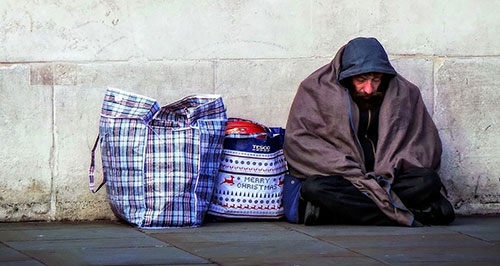DCN Better Lives spokesperson Cllr Giles Archibald said: “We have grave concerns that the huge impact on jobs and incomes could send many of these half a million families over the edge and into homelessness in the coming months, particularly those struggling to pay their rent in the private rented sector.”
Of particular concern are 108,000 lone parents and their children (representing 20 per cent of all lone parents renting in the private sector), 100,000 16 to 24 year olds (almost 20 per cent of all young renters) and 160,000 households with incomes of less than £15,000.
Housing secretary Robert Jenrick said this week that the government would give renters “added protection” when the current eviction ban is lifted.
He told MPs that he is working to put a protocol in place that would ensure landlords have a duty to “reach out to them [tenants], discuss their situation and try to find an affordable repayment plan” before turning to eviction proceedings.
It follows a government pledge in March to make £3.2 million available to councils to help the homeless during lockdown.
However, the DCN argues more action is needed in the face of the drastic economic challenges presented by the pandemic and the additional strain on already-stretched council resources.
Advertising helps fund Big Issue’s mission to end poverty
It is calling on the government to commit to permanently lifting housing benefit for tenants in private rented housing, and to increase funding for councils working to prevent homelessness.
There are also calls for the government to reinvigorate the building of council houses to create homes, jobs and growth, and to review the financial support given to businesses so that it incentivises them to retain and create jobs.
Meanwhile, Shelter called on the government to raise the housing element of Universal Credit in order to avoid the housing crisis reaching a critical point.
The fact that the housing crisis could get even worse is a terrifying prospect
Shelter’s chief executive Polly Neate said: “Even before the pandemic we were in the middle of a housing emergency with hundreds of thousands of people with nowhere to call home. The fact that this could now get even worse is a terrifying prospect.
“The current crisis has meant that millions will be facing job losses or drastic reductions in income. Nearly two million people have already had to apply for Universal Credit, many for the first time, in a bid to keep themselves afloat. However the housing part of Universal Credit is going to be far too low for most people, and too many renters will find themselves in debt or rent arrears.
“To stave off a sharp rise in homelessness once the emergency eviction ban lifts in June, we need swift action from the government to raise the housing element of Universal Credit now so that it can cover average rents and help people keep a roof over their heads.”
Advertising helps fund Big Issue’s mission to end poverty
The DCN’s warning comes just two weeks after a damning UN statement on government response to coronavirus highlighted how the virus is hitting society’s most vulnerable the hardest.
That report cited figures that predict over half a billion additional people could be pushed into poverty worldwide due to Covid-19, in the face of almost 200 million full-time job losses.









